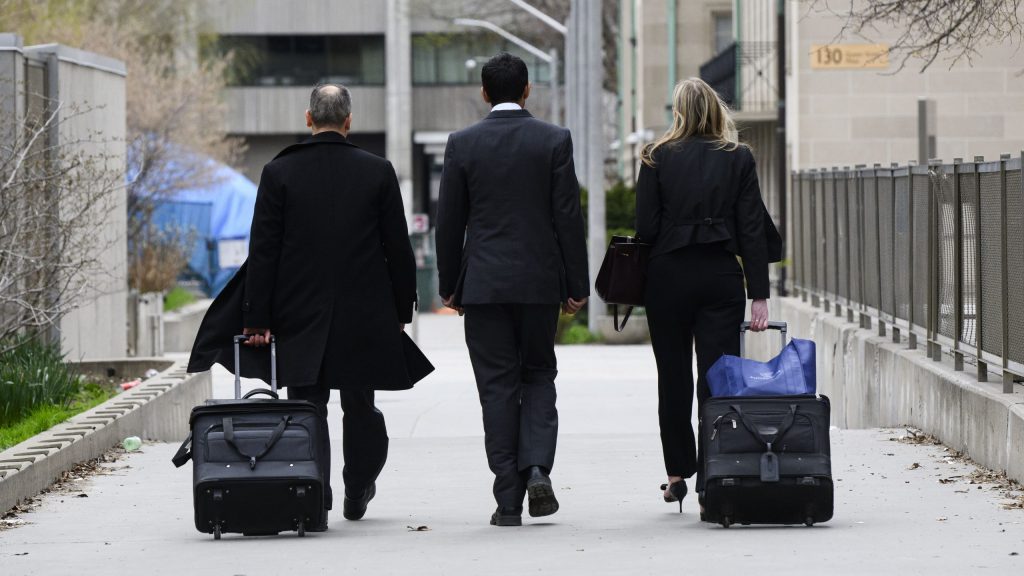Even Moderate Heart Problems Can Increase Stroke Risk
Posted June 15, 2006 12:00 pm.
This article is more than 5 years old.
It’s a disturbing fact of life that people with heart problems, especially those who’ve had a heart attack, are at a greater risk of suffering a stroke.
And a new study won’t do much to assuage those fears – but it will help individuals who are at risk to protect themselves.
The findings suggest that even slight impairment in the heart’s ability to pump blood to the rest of the body can elevate the chance of a stroke.
But there’s a test those suffering from heart disease can take that could uncover potential problems, even if you’re feeling fine.
Dietrich Boecker suffered a stroke two years ago and had severe heart disease eight years earlier. The ailment is a risk factor for stroke and it’s a good idea to have your heart function tested even if you’re active and feeling great.
“I had up to 80 percent blocked arteries,” Boecker said.
The device used in this test is called an echocardiograph. It can take images of a beating heart using ultrasound and your doctor can use it to measure how efficiently your heart is beating by gauging the amount of blood the organ is pushing out with every beat.
It’s important to talk to your doctor about creating a personal plan to prevent heart attack or stroke.
What Is A Stroke?
A stroke is the sudden loss of brain function, which is caused by the interruption of blood flow to the brain – an ischemic stroke – or the rupture of blood vessels in the brain – a hemorrhagic stoke.
A stroke can have a wide variety of effects on your body, including your:
- Ability to move and coordinate movement
- Ability to feel touch, temperature, pain and movement
- Ability to see or to interpret what you see
- Ability to think, to remember, understand, plan, reason or problem-solve
- Ability to communicate (speaking and understanding speech, as well as reading, writing and the ability to do mathematics)
- Personality
- Emotions
- Behaviour
What Are The Risk Factors?
AGE
- The older you are, the greater your risk of stroke. Over two thirds of all strokes occur among people over the age of 65 years
- A woman’s risk of having a stroke increases significantly after menopause.
GENDER
- Men have a higher risk than women of having a stroke.
- However, as women tend to live longer than men – and the risk of dying from stroke increases with age – each year more women than men die from stroke.
ETHNICITY
Canadians of First Nations/Aboriginal Peoples, African, Hispanic, South Asian and Black descent have higher rates of high blood pressure and diabetes – conditions that can lead to stroke.
FAMILY HISTORY
PRIOR STROKE OR TIA
Up to a third of people who survive a first stroke or Transient Ischemic Attack (a TIA or “mini-stroke”) have another stroke within 5 years.
HIGH BLOOD PRESSURE
INACTIVITY
EXCESSIVE ALCOHOL CONSUMPTION
What Are The Warning Signs?
- Sudden numbness or weakness of the face, arm or leg, especially on one side of the body
- Sudden confusion, trouble speaking or understanding
- Sudden trouble seeing in one or both eyes
- Sudden trouble walking, dizziness, loss of balance or coordination
- Sudden, severe headache with no known cause
Prevention
- Have regular screenings for high blood pressure (at least every two years in adults and more frequently in minorities and the elderly).
- Don’t smoke and eliminate exposure to secondhand smoke.
- Maintain tight control of blood pressure if you have diabetes.
- Reduce sodium; eat a diet high in fruit, vegetables, low-fat dairy products and low in saturated and total fat.
- Lower total cholesterol to acceptable levels.
- Lose weight, which can lower blood pressure.
- Be physically active (moderate intensity) for at least 30 minutes a day.
- If you drink alcohol, limit your intake to no more than two drinks a day for men and one drink a day for non-pregnant women.
- Do not use illicit drugs.
- Do not take oral contraceptives if you are a woman who smokes or has a history of blood clots.
- Look for signs of sleep-disordered breathing (loud snoring, excessive daytime sleepiness, repeatedly gasping for breath during sleep); see a specialist for further evaluation.
Information courtesy of the Canadian Heart and Stroke Foundation and the American Heart and Stroke Foundation.










